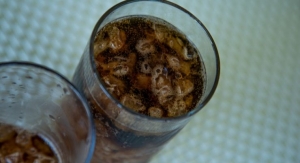By Sean Moloughney, Editor04.13.23
It’s been more than 4 years since the Agriculture Improvement Act of 2018 (the Farm Bill) effectively freed hemp—defined as cannabis (Cannabis sativa L.) and its derivatives that contain no more than 0.3% THC by dry weight—from Schedule I status under the Controlled Substances Act.
Demand for hemp derivatives like cannabidiol (CBD) quickly reached fever pitch, growing from basically zero to a $4.6 billion U.S. market in 2020, according to the Brightfield Group.
Governing an array of agricultural and food programs, the Farm Bill, which Congress reauthorizes about every 5 years, preserved FDA’s authority over hemp products. Given the explosive market growth for CBD, the FDA formed a high-level CBD Policy Working Group in 2019 to study the safety of this unique cannabinoid.
Four years later, the FDA finally reached its long-awaited conclusion. “Given the available evidence, it is not apparent how CBD products could meet safety standards for dietary supplements or food additives,” Janet Woodcock, MD, principal deputy commissioner - Office of the Commissioner, said in a Jan. 26 statement.
FDA has also dug its heels in on the drug exclusion clause of the Dietary Supplement Health and Education Act (DSHEA), which restricts companies from adding to food any active ingredient in an approved drug product or a substance for which substantial clinical investigations have been instituted and the existence of those investigations has been made public.
In June 2018, FDA approved the drug Epidiolex—whose active ingredient is CBD—for treatment of seizures associated with two rare and severe pediatric diseases. Effectively, according to FDA, this approval closed the door on CBD foods and supplements, regardless of any safety concerns.
While the agency could have granted an exception through a notice, comment, and rulemaking process, instead it chose to punt the CBD football back to Congress, just in time for another round of Farm Bill negotiations in 2023.
Without adequate regulation and guardrails over the past 4 years, like good manufacturing practices (GMPs) and adverse event reporting (AER)—which the dietary supplement framework affords—hemp growers and other stakeholders up and down the value chain, including consumers, have suffered.
Congress now has the opportunity to (re)confirm its intentions and explicitly direct FDA accordingly. It’s past time that this market be given stable ground on which to thrive.
Demand for hemp derivatives like cannabidiol (CBD) quickly reached fever pitch, growing from basically zero to a $4.6 billion U.S. market in 2020, according to the Brightfield Group.
Governing an array of agricultural and food programs, the Farm Bill, which Congress reauthorizes about every 5 years, preserved FDA’s authority over hemp products. Given the explosive market growth for CBD, the FDA formed a high-level CBD Policy Working Group in 2019 to study the safety of this unique cannabinoid.
Four years later, the FDA finally reached its long-awaited conclusion. “Given the available evidence, it is not apparent how CBD products could meet safety standards for dietary supplements or food additives,” Janet Woodcock, MD, principal deputy commissioner - Office of the Commissioner, said in a Jan. 26 statement.
FDA has also dug its heels in on the drug exclusion clause of the Dietary Supplement Health and Education Act (DSHEA), which restricts companies from adding to food any active ingredient in an approved drug product or a substance for which substantial clinical investigations have been instituted and the existence of those investigations has been made public.
In June 2018, FDA approved the drug Epidiolex—whose active ingredient is CBD—for treatment of seizures associated with two rare and severe pediatric diseases. Effectively, according to FDA, this approval closed the door on CBD foods and supplements, regardless of any safety concerns.
While the agency could have granted an exception through a notice, comment, and rulemaking process, instead it chose to punt the CBD football back to Congress, just in time for another round of Farm Bill negotiations in 2023.
Without adequate regulation and guardrails over the past 4 years, like good manufacturing practices (GMPs) and adverse event reporting (AER)—which the dietary supplement framework affords—hemp growers and other stakeholders up and down the value chain, including consumers, have suffered.
Congress now has the opportunity to (re)confirm its intentions and explicitly direct FDA accordingly. It’s past time that this market be given stable ground on which to thrive.




























